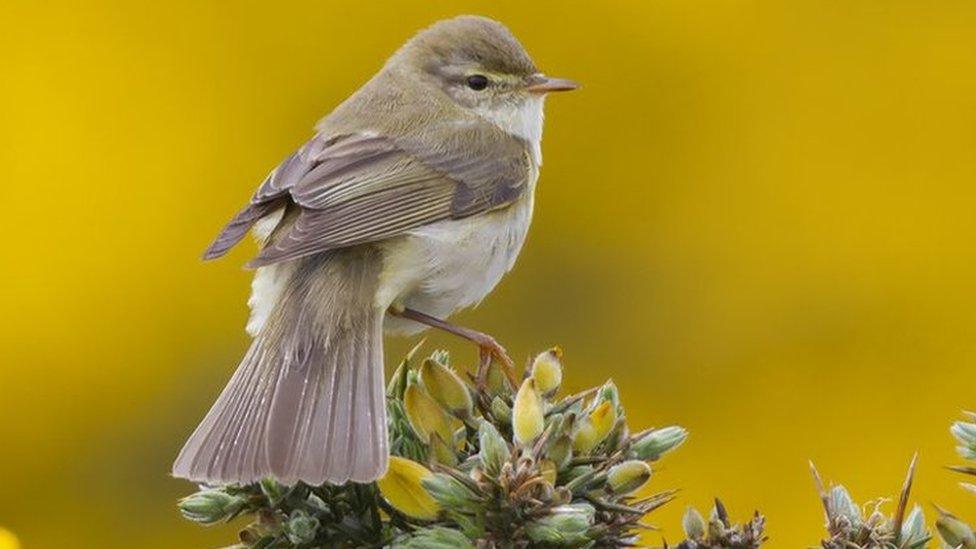Isle of Man hen harrier census begins amid fears of a decline
- Published

Manx BirdLife's data will be used as part of a study of populations across the British Isles
A survey of the Isle of Man's hen harrier population is being carried out amid fears of a decline, conservationists have said.
Manx BirdLife said it was now estimated numbers of the birds of prey may have fallen from 57 in 2004 to about 25.
The census is being carried out during the nesting season between April and July as part of a wider study across the British Isles.
The RSPB said hen harriers remain under threat from illegal shooting in the UK.
Manx Birdlife said the island has historically provided sanctuary for "one of the most persecuted of all birds", with UK conservation charities reporting hen harriers are often killed on land managed for grouse shooting.
Results from the Manx survey will be shared with the RSPB, along with data from other hen harrier studies held in England, Scotland, Wales, Northern Ireland and Ireland.

The public have been warned against disturbing the birds during the nesting season
A Manx BirdLife spokesman said little was known about the movement of the island's hen harriers, with early studies suggesting the island's breeding population was "insular, and genetically distinct" from those elsewhere in the British Isles and Europe, where numbers are in decline.
Under the island's wildlife laws it is a criminal offence to disturb wild birds during the nesting season.
Surveyors from Manx BirdLife are "specially licensed" by the government to undertake the census, the charity's managing director Neil Morris said.
He said while the charity was "always grateful to receive information about these special birds", people should not approach them.
"Even minimal disturbance by people can alert predators, which will destroy eggs and kill young harriers," he added.

Why not follow BBC Isle of Man on Facebook, external and Twitter, external? You can also send story ideas to IsleofMan@bbc.co.uk, external
Related topics
- Published24 August 2021
